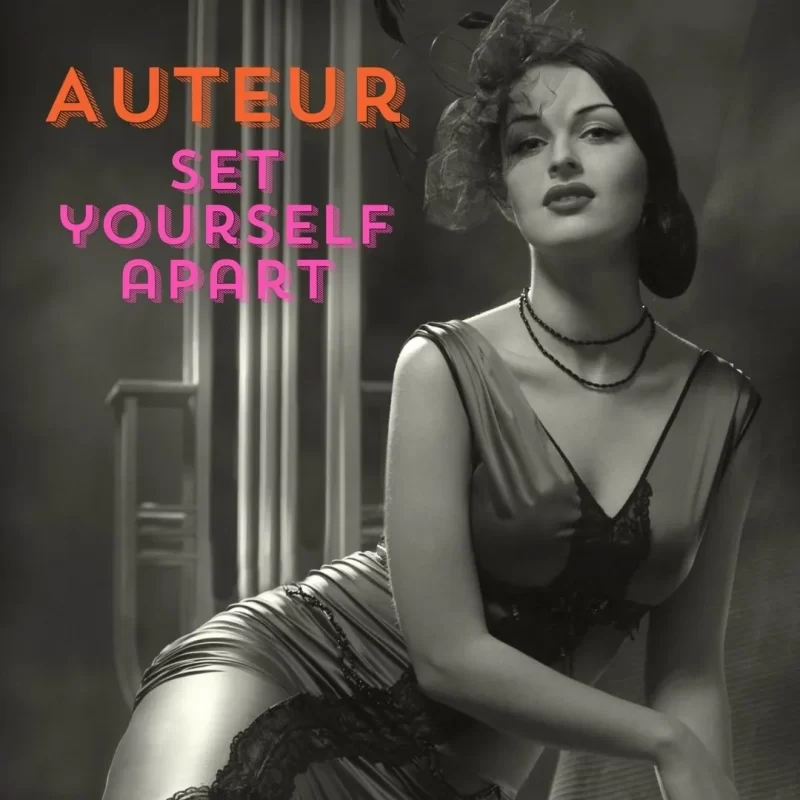In the vast landscape of cinema, there exists a breed of creators whose vision transcends mere storytelling. They are the auteurs, the masters of their craft who imprint their distinctive style, themes, and sensibilities onto every frame they capture. The term “auteur” originates from French film criticism, popularized by André Bazin and François Truffaut in the 1950s, and it refers to a filmmaker who exercises complete creative control over their work, akin to an author in literature. However, the concept extends beyond directors to include screenwriters who infuse their scripts with a unique voice and perspective. In this exploration, we delve into the essence of the auteur, examining its historical roots, iconic figures, and the profound impact it has on filmmaking.
Defining the Auteur
At its core, being an auteur means having a distinct artistic vision and authorial voice that permeates every aspect of a film. This encompasses not only visual style and narrative themes but also character portrayals, editing techniques, and overall atmosphere. Auteurism celebrates the director or screenwriter as the primary creative force behind a movie, elevating them to the status of an artist rather than a mere technician.
Historical Icons of Auteurism
In the annals of film history, several auteurs have left an indelible mark with their singular approach to cinema. One such luminary is Alfred Hitchcock, often hailed as the “Master of Suspense.” With films like “Psycho” and “Vertigo,” Hitchcock crafted intricate narratives filled with psychological tension and visual flair, earning him a reputation as one of the greatest auteurs of all time.
Another towering figure is Stanley Kubrick, known for his meticulous attention to detail and thematic complexity. From the dystopian futurism of “A Clockwork Orange” to the cosmic odyssey of “2001: A Space Odyssey,” Kubrick’s films are unmistakably his own, bearing the imprint of his intellectual rigor and visionary storytelling.
Directorial Auteurism
For directors, embracing the mantle of the auteur involves more than just technical proficiency; it requires a deep-seated commitment to personal expression and artistic integrity. Directors like Quentin Tarantino exemplify this ethos, infusing their films with a distinctive blend of pop culture references, nonlinear storytelling, and razor-sharp dialogue. In “Pulp Fiction” and “Kill Bill,” Tarantino’s directorial fingerprint is unmistakable, elevating genre conventions to the realm of high art.
Similarly, auteurs like Wes Anderson employ a meticulously crafted visual style characterized by symmetrical compositions, vibrant colors, and whimsical storytelling. Films like “The Grand Budapest Hotel” and “Moonrise Kingdom” showcase Anderson’s unique brand of cinematic escapism, transporting audiences to worlds that are at once fantastical and deeply resonant.
Screenwriting Auteurism
While directors often take center stage in discussions of auteurism, screenwriters play an equally vital role in shaping the narrative landscape of a film. Screenwriting auteurs like Charlie Kaufman are renowned for their unconventional storytelling and existential themes. In “Eternal Sunshine of the Spotless Mind” and “Being John Malkovich,” Kaufman’s scripts challenge conventional narrative structures, inviting audiences to ponder the nature of identity and memory.
Aaron Sorkin is another screenwriting auteur known for his rapid-fire dialogue and incisive social commentary. In films like “The Social Network” and “Moneyball,” Sorkin’s scripts crackle with wit and intelligence, breathing life into complex characters and real-world events.
Cultivating the Auteur Mindset
For aspiring auteurs, cultivating a distinct artistic voice requires a combination of self-discovery, technical skill, and unwavering dedication. It entails exploring personal passions, honing storytelling abilities, and fearlessly challenging conventions. Whether through formal education, hands-on experience, or sheer trial and error, aspiring auteurs must embark on a journey of creative exploration, embracing failure as a necessary step on the path to mastery.
Moreover, being an auteur means staying true to one’s vision in the face of external pressures and commercial considerations. It means resisting the temptation to compromise artistic integrity for the sake of marketability or mainstream appeal. By remaining steadfast in their commitment to authenticity and creative freedom, auteurs can forge a lasting legacy that transcends fleeting trends and commercial success.
Standing Out from the Crowd
In a saturated media landscape, being an auteur offers a distinct competitive advantage, allowing filmmakers to carve out a niche and command attention in a sea of mediocrity. Auteurism celebrates individuality and originality, inviting audiences to engage with stories that reflect the unique perspectives of their creators. By embracing the principles of auteurism, filmmakers can distinguish themselves from the pack, leaving an indelible mark on the cinematic landscape and shaping the cultural conversation for generations to come.
Being an auteur is more than just a title; it’s a testament to the power of artistic vision and creative autonomy. Whether as a director or screenwriter, embracing the ethos of auteurism empowers filmmakers to transcend the constraints of genre, medium, and convention, forging a deeper connection with audiences and leaving an enduring legacy that resonates far beyond the silver screen. As we continue to celebrate the legacy of past auteurs and champion the voices of emerging talents, let us remember that true greatness lies not in conformity but in the courage to chart a course uniquely our own.


1 thought on “The Auteur: A New Vision -Director and Screenwriter”
Pingback: Master the Art of Blending Genres - Independent Film Arts Academy